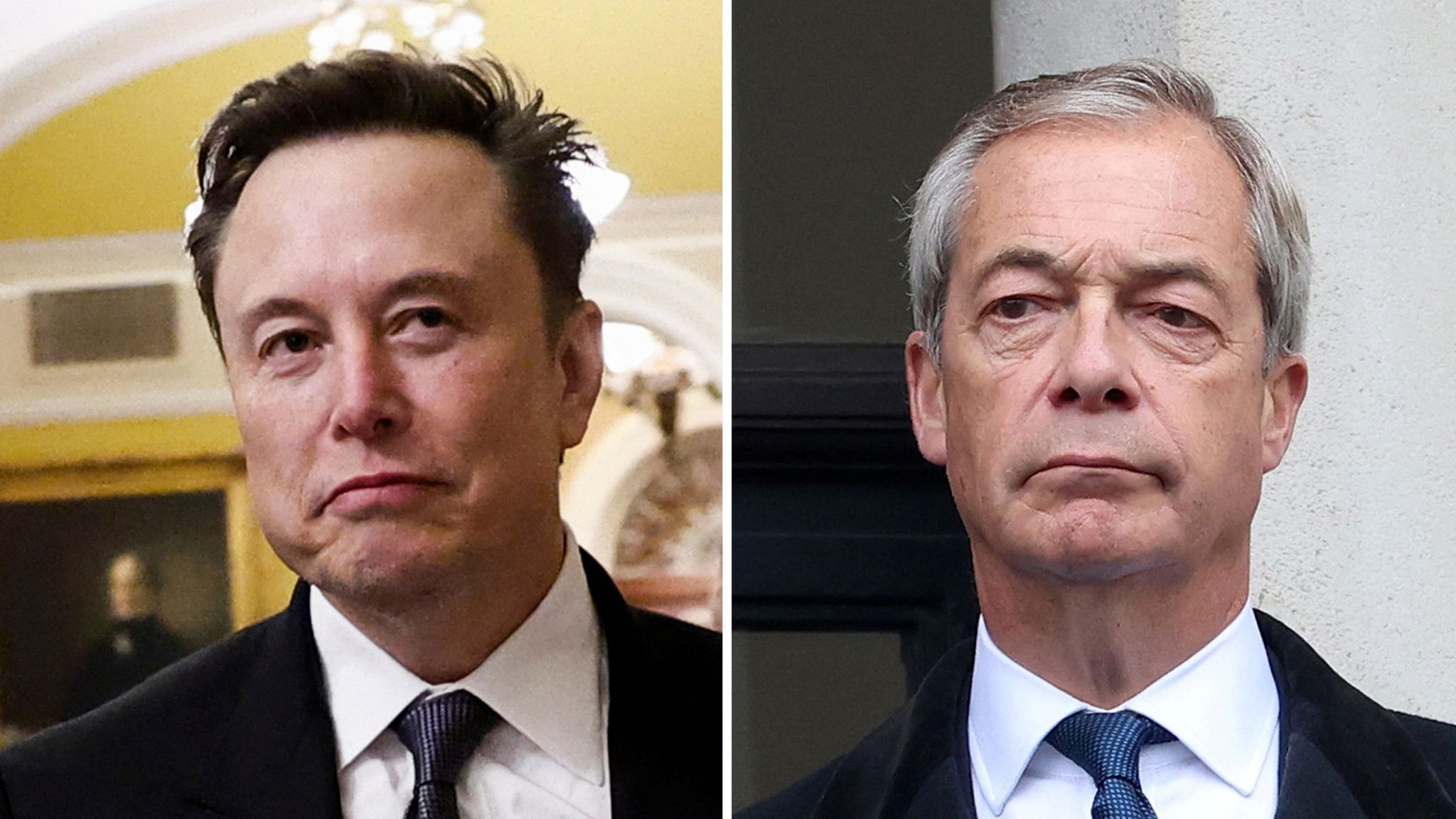bmy88 com register
Stock market today: Wall Street climbs as bitcoin bursts above $99,000‘American Idol’ Alum Caleb Kennedy Pleads Guilty, Gets 8 Years in Prison After Fatal DUI CrashLA Galaxy strike early, hold off New York Red Bulls 2-1 to win their record 6th MLS Cup championship
When it comes to premium TVs, OLEDs are the gold standard for best picture, with their beautiful contrast compared to QLEDs . They are expensive, but you can find ways around it, like shopping the previous year's model. The LG B3 OLED TV is a great example of that, currently sitting at $798 (originally $1,199) for the 55-inch model, the lowest price it has reached according to price-tracking tools . The B-series from LG are their budget OLED TVs and bring great value for their price. The LG B3 came out in 2023, so it was dethroned this year when the LG OLED B4 came out. Next month, CES 2025 will take place, bringing out the latest tech products, including OLED TVs, so it's likely the reason why retailers are trying to get rid of their supplies of B3s (and most older-model tech products, for that matter). This B3 has great audio formats, with Dolby Vision HDR, Dolby Digital, Dolby Atmos, and DTS support. You'll also get four HDMI ports, two of which are HDMI 2.1 with up to 4K resolution at 120Hz. This is great for gamers, who can also play their games in nearly tear-free video with its complete variable refresh rate (VRR) technology. There's also a "Game Optimizer" picture mode setting that helps you set the TV to enhance all the gaming specs. The interface is LG's webOS smart platform, which is compatible with Amazon Alexa, Apple Homekit, Google Assistant, and Apple Airplay2. This TV is great overall, but as a gaming TV, it performs at its best. If you're looking for a good deal on an OLED TV that will take your gaming to the net level, the LG B3 for $798 is a great value.Deputy Prime Minister Angela Rayner has been warned that her workers' rights overhaul could lead to a number of people losing their jobs. The Labour Government's policy will see sick workers claim sick pay from the first day of their illness rather than the fourth. More staff will also be eligible for statutory sick pay. Under current rules, workers need to earn at least £123 a week to qualify. But this threshold could soon be removed. But Shazia Ejaz at the Recruitment and Employment Confederation believes that this will add further costs to businesses with 60% of new statutory sick pay already being paid by employers. She warned: "Small businesses, which make up a significant portion of the market, would bear a disproportionate cost burden, with 60% of new statutory sick pay (SSP) costs falling on them. “We urge the Government to set the rate of SSP at a level that encourages employers to retain staff, rather than having to move swiftly to capability-based dismissal.” Ms Rayner's reforms also include restrictions for zero-hours contracts and a clamp down on 'fire and rehire'. The Deputy Prime Minister has said the reforms are “the biggest upgrade to rights at work for a generation, boosting pay and productivity with employment laws fit for a modern economy". A spokesman for the Department for Work and Pensions added: “No one should be forced to choose between their health and financial hardship, which is why we have consulted on plans to strengthen statutory sick pay and make sure everyone is entitled from the first day they are sick, regardless of earnings. “That consultation closed this week and we’ll be considering responses at pace. These reforms as part of the employment rights Bill will support people managing a health condition to stay in work and raise living standards across the country.” Earlier this week, some of the country's biggest recruiters said the reforms will damage the economy. They wrote to Jonathan Reynolds, the Business Secretary, saying: “Growth is the Government’s priority ... Yet the approach taken in the current consultation delivers the opposite of this. "If applied, it would undermine both the temporary and permanent jobs markets, slowing job search by reducing opportunities and potentially exposing workers to poorer treatment and false self-employment.”
A person’s face is covered by a Chinese flag fluttering in the wind in Beijing in an undated photograph.Photo: Bloomberg ‘UNITED FRONT’: Beijing provides Internet ‘influencers’ with templates and directions, such as criticizing Taiwanese politicians, the rapper said By Chung Li-hua and Esme Yeh / Staff reporter, with staff writer 請繼續往下閱讀... Taiwanese rapper Chen Po-yuan (陳柏源) in a video showed how the Chinese Communist Party (CCP) bribes Taiwanese online influencers in its “united front” efforts to shape Taiwanese opinions. The video was made by YouTuber “Pa Chiung (八炯)” and published online on Friday. Chen in the video said that China’s United Front Work Department provided him with several templates and materials — such as making news statements — with some mentioning Chinese Nationalist Party (KMT) politician Hung Hsiu-chu (洪秀柱) and New Taipei City Mayor Hou You-yi (侯友宜) and asking him to write a song criticizing the Democratic Progressive Party. 請繼續往下閱讀... He said he had produced content for China as requested, but did not receive the royalties as promised by a Beijing-based management company for his song Chinese Bosses (中國老總), which is sung in an exaggerated Taiwanese accent with lyrics implying a pleasant life for businesspeople in China. Chen said he also founded a company in China jointly with a business partner from the Jinjiang Taiwan Compatriots Friendship Association, who worked as his manager and later poached all his employees and capital invested in the company. He was labeled as a fraud and a “Taiwanese independence separatist,” and attacked by Chinese Internet trolls, after he released an online video condemning his former business partner for betraying him. “I finally realized the hard way that where I was staying [China] was not a place of democracy,” Chen said, adding that there is a huge difference between democratic Taiwan and autocratic China. The Mainland Affairs Council yesterday said it is in control of the situation where Taiwanese influencers allegedly vilify the government’s policies, lure Taiwanese to work in China or engage in “united front” campaigns requested by the Chinese government. The National Security Act (國家安全法) prohibits people from engaging, initiating, funding, hosting, manipulating, directing or developing an organization for a foreign country, including China, Hong Kong and Macau, external hostile forces, or any type of organizations, institutions, or groups established or controlled by them, or a representative dispatched by such organizations, institutions or groups, the council said. The Anti-Infiltration Act (反滲透法) prohibits people from receiving instructions, being commissioned or funded by external hostile forces to engage in activities that disrupt social order, spread disinformation or interfere with elections, it said. Article 33-1 of the Act Governing Relations Between the People of the Taiwan Area and the Mainland Area (臺灣地區與大陸地區人民關係條例) prohibits individuals, juristic persons, organizations or other institutions from engaging in any form of cooperation with the Chinese military, political parties or any organization of a political nature, it added. 新聞來源: TAIPEI TIMES 不用抽 不用搶 現在用APP看新聞 保證天天中獎 點我下載APP 按我看活動辦法AMMAN, Jordan — President Joe Biden on Tuesday announced Israel and Lebanon have reached a ceasefire agreement meant to pause fighting between Israel and the Iran-backed Hezbollah. The 14-month conflict has left more than 3,000 people dead. “Effective 4 a.m. tomorrow local time the fighting across the Lebanese-Israeli border will end. Will end,” Biden said from the White House. “This is designed to be a permanent cessation of hostilities. I applaud the courageous leaders of Lebanon and Israel end the violence.” Israeli Prime Minister Benjamin Netanyahu said earlier Tuesday he had recommended that this government approve the agreement. Though the deal does not involve the separate conflict in Gaza Strip, Biden administration officials said they hoped it would lead to an agreement to end fighting there, too. Even as the deal was finalized, Israeli warplanes launched a series of airstrikes across Lebanon, striking areas in the country’s southern and eastern regions, along with the suburbs of the capital — areas where Hezbollah holds sway. Several airstrikes also hit the heart of Beirut, killing at least 10 people, according to Lebanon’s Health Ministry. In a televised address on Tuesday evening local time, Netanyahu said he would present the outline of the proposal to the government, pushing his ministers to accept the move despite reservations from far-right leaders who are integral members of his coalition. “The length of the ceasefire will depend on what happens in Lebanon,” Netanyahu said. He added that Israel would maintain freedom to act against violations. “If Hezbollah breaks the agreement and seeks to arm itself, we will attack,” he said. The agreement would not immediately affect the fighting in Gaza Strip with the Palestinian militant group Hamas. Netanyahu pushed his ministers to accept the agreement, arguing it would allow Israel to focus its attention on the threat from Iran, give Israeli troops an opportunity to replenish their stocks and isolate Hamas. The agreement will initiate a 60-day truce that would see both sides withdraw: Israeli troops out of south Lebanon to Israeli territory, and Hezbollah to areas north of the Litani River, some 18 miles north of the Lebanese-Israeli border. During the truce, a monitoring mechanism would be established that would ensure Hezbollah is not able to reconstitute itself or wage attacks on Israel from southern Lebanon. A U.S.-led committee would oversee implementation of the withdrawal. Lebanese officials say some 5,000 soldiers from Lebanon’s army — which has remained neutral during the conflict — would then enter south Lebanon, along with U.N. peacekeeping forces. Lebanon’s caretaker government is set to meet Wednesday morning to discuss the proposal; it is widely expected to be approved. Despite the optimism, many elements of the ceasefire proposal — which came about after vigorous negotiations brokered by the U.S. and France — remain unclear. One of the larger sticking points is whether Israel would be able to continue striking Hezbollah throughout Lebanon if the group attempts to reestablish a presence south of the Litani River, or if it continues to wage attacks on Israel or smuggle weapons. Israeli Defense Minister Israel Katz told the U.N.’s Lebanon envoy Jeanine Hennis-Plasschaert on Tuesday that Israel would act “forcefully” against any breach of the ceasefire agreement. “If you do not act, we will do it, forcefully,” Katz said in a statement. “Any house rebuilt in south Lebanon and used as a terrorist base will be destroyed, any rearming or terrorist organization will be attacked, any attempt at transferring arms will be foiled, and any threat against our forces or our citizens will be immediately eliminated.” Lebanese leaders have dismissed such an agreement as an unacceptable breach of Lebanon’s sovereignty. The ceasefire would officially be an agreement between Israel and Lebanon. It includes a Lebanese lawmaker who has been negotiating on Hezbollah’s behalf. But Hezbollah, a paramilitary faction and political party which is backed by Iran, is not officially a party to the agreement. Another question is the fate of Hezbollah’s weapons. Before the war, the group was considered one of the world’s premier paramilitary factions, with an arsenal more powerful than that of the Lebanese army. The ceasefire agreement, which is based on a U.N. resolution that established a ceasefire in the 2006 war between Hezbollah and Israel, has provisions that would force the group to surrender its arms. A ceasefire would end a 13-month conflict that began a day after Hamas attacked southern Israel, when Hezbollah initiated a rocket campaign in northern Israel in solidarity with Palestinians in Gaza. In the months of tit-for-tat strikes that followed, some 60,000 people from northern Israel and approximately 100,000 Lebanese from southern Lebanon were displaced. In September, Israel escalated its attacks, conducting thousands of airstrikes on Hezbollah-dominated parts of the country and starting an invasion that saw Israeli troops enter southern Lebanon for the first time since 2006. It also assassinated Hezbollah chief Hassan Nasrallah . Since Oct. 8, 2023, more than 3,823 people have been killed in Lebanon and 15,859 injured, according to Lebanese government data, the majority of them in the last two months. More than 25% of those killed were women and children, according to the government data, which do not distinguish between civilians and combatants. Meanwhile, some 1.2 million people — almost a quarter of Lebanon’s population — have been displaced, with wide swaths of the country destroyed. The Israeli government said on Tuesday that 78 Israelis have been killed in attacks by Hezbollah and its allies, including 47 civilians. Even as senior Israeli ministers were meeting at Israeli military headquarters in Tel Aviv, Israeli warplanes launched some 180 airstrikes across the country, according to a statement from Israel’s military. It issued evacuation warnings for some cities. The military said it was targeting Hezbollah’s infrastructure, including the group’s financial arm. Among the targets were four neighborhoods of central Beirut with which had previously been spared from the fighting. One raid hit Hamra, a popular shopping district in the capital which in recent months has become a sanctuary for hundreds of thousands displaced from the Dahieh, the constellation of suburbs south of Beirut where many of Hezbollah’s offices are headquartered. The Dahieh too was pounded by an intense barrage of more than 20 airstrikes, leaving the area obscured by a curtain of smoke and rocking buildings in adjacent neighborhoods. “The hysterical Israeli aggression this evening on Beirut and various Lebanese regions, which specifically targets civilians, confirms once again that the Israeli enemy does not respect any law or consideration,” said Lebanese caretaker Prime Minister Najib Mikati in a statement on Tuesday. He called on the international community “to act quickly to stop this aggression and implement an immediate ceasefire.” Meanwhile, Hezbollah continued its barrage against northern Israel, lobbing dozens of projectiles across the border. ©2024 Los Angeles Times. Visit at latimes.com . Distributed by Tribune Content Agency, LLC.
Prospects for President Yoon's impeachment are dim with ruling party boycotting votePrincely Umanmielen’s return to the Swamp ends with a loss and a police escort
None
Harris has ‘no knowledge’ anyone tried to get RTE to take down viral clipBarca collapse in Celta draw without Yamal, Simeone hits milestoneEx-Leafs Defender In Trouble with Player Safety After Applying Choke Hold During Altercation
- Previous: bmy88 agent
- Next: bmy88 download




